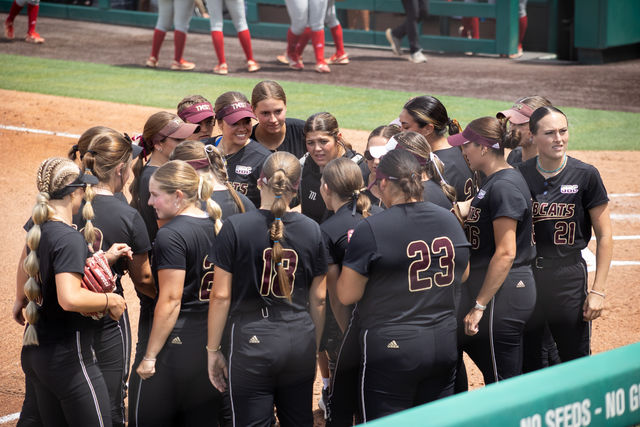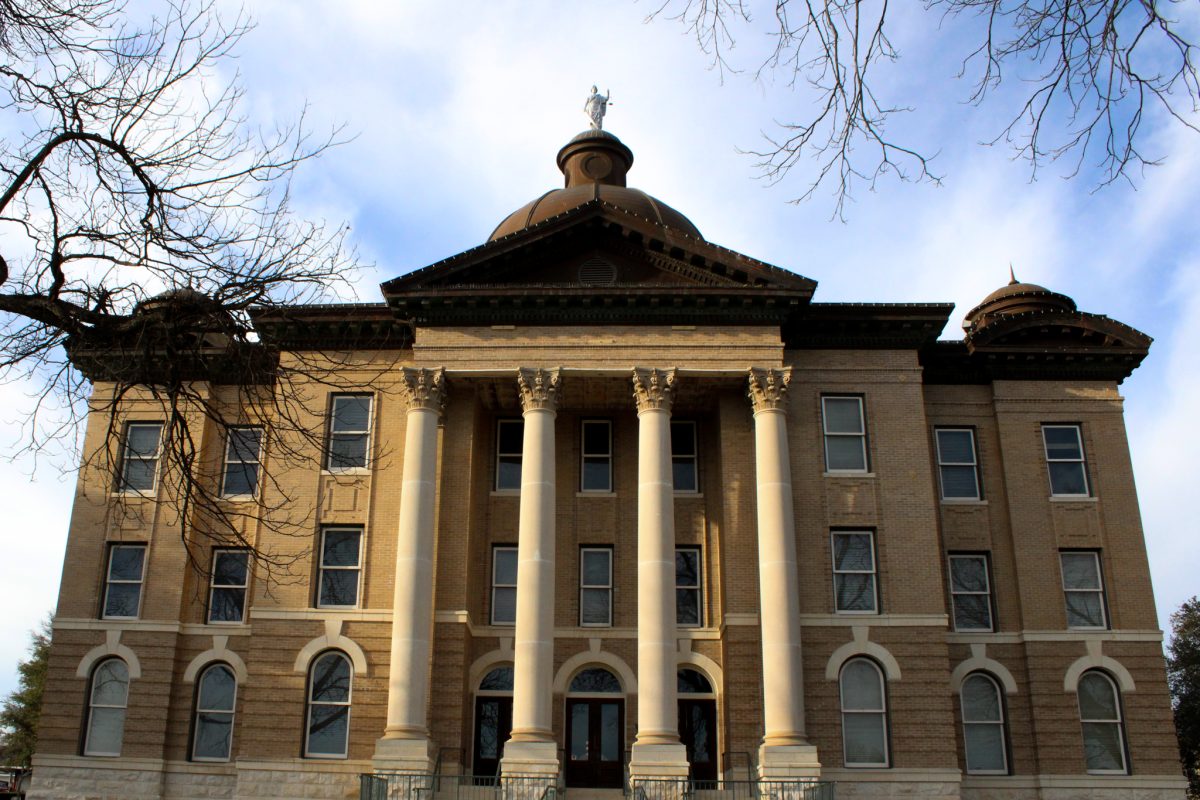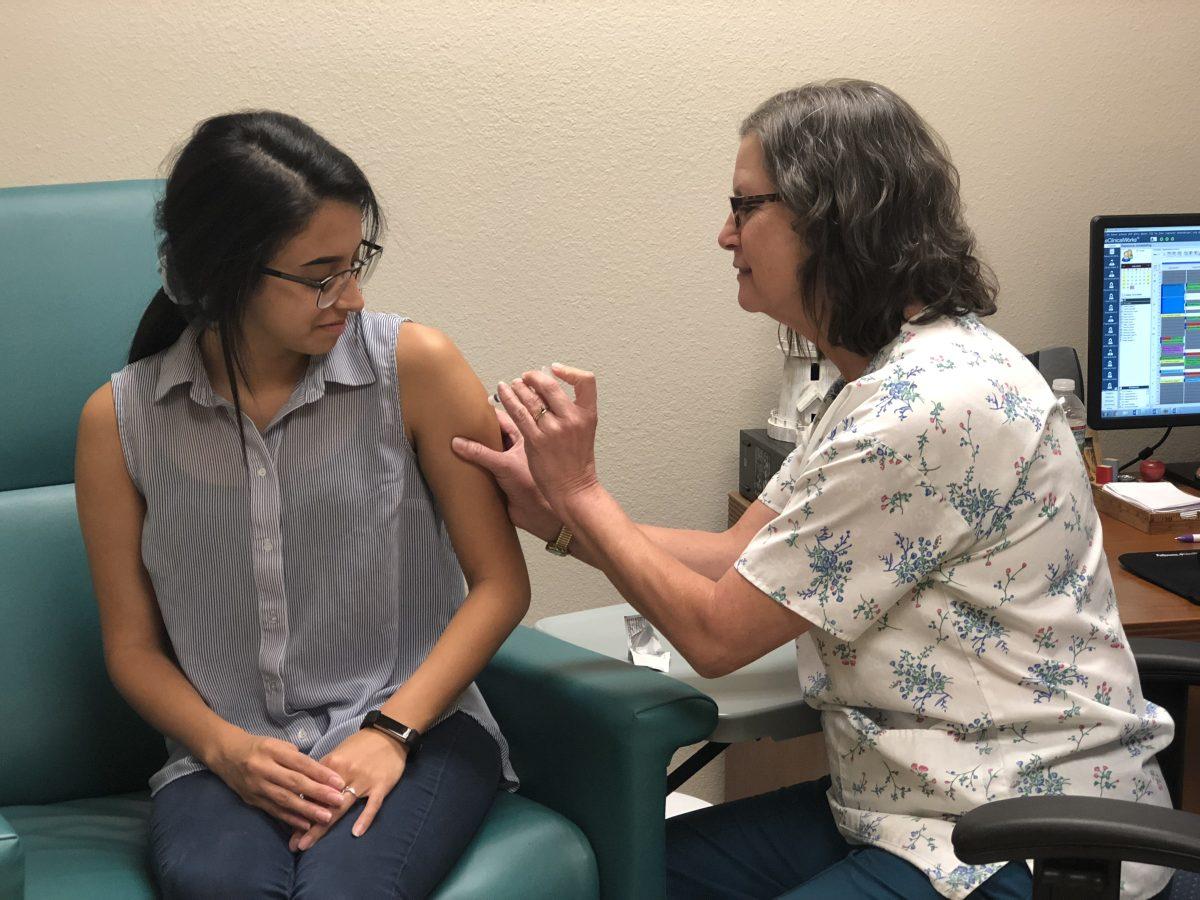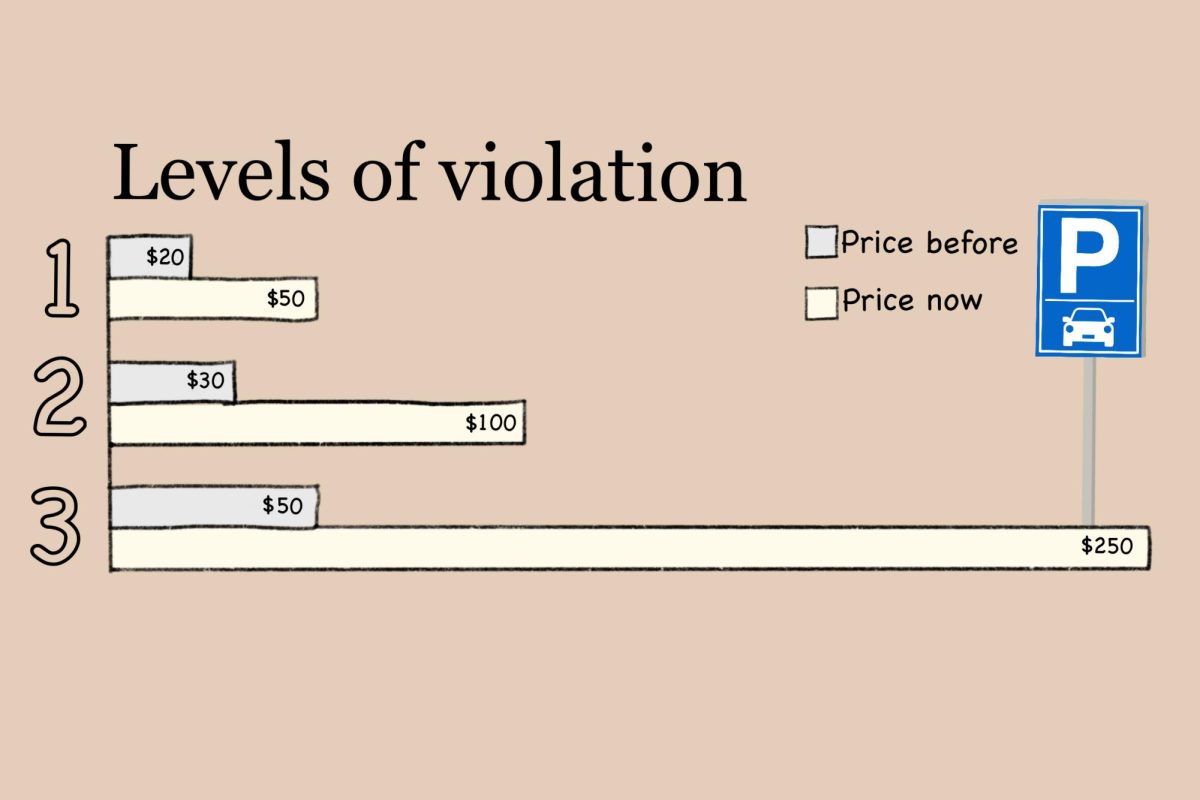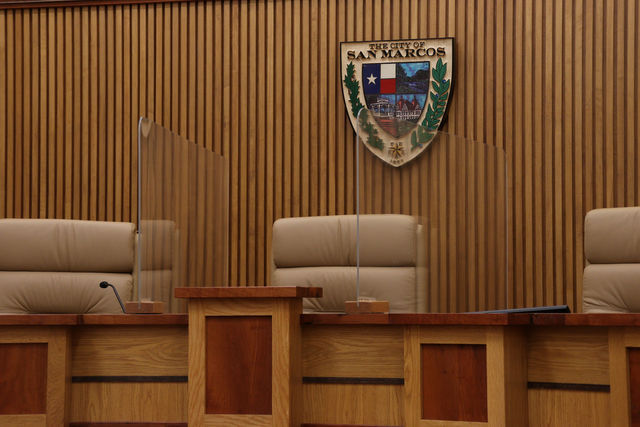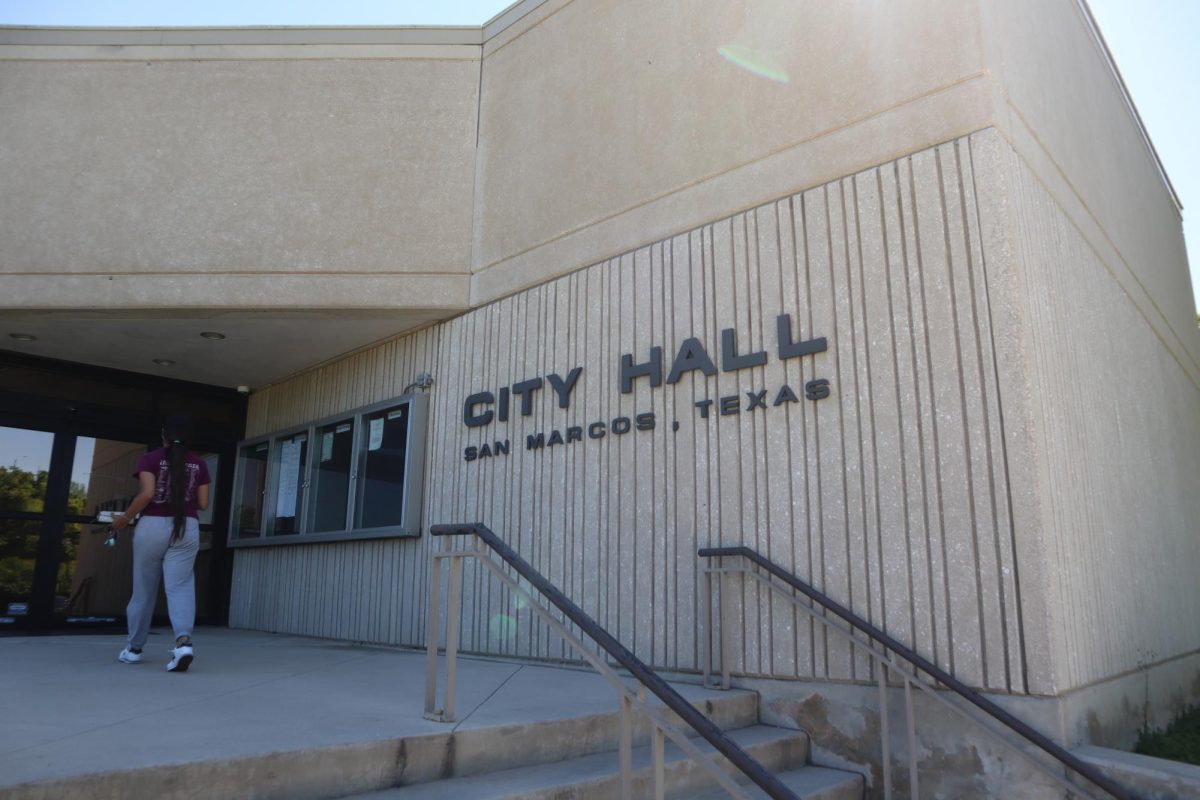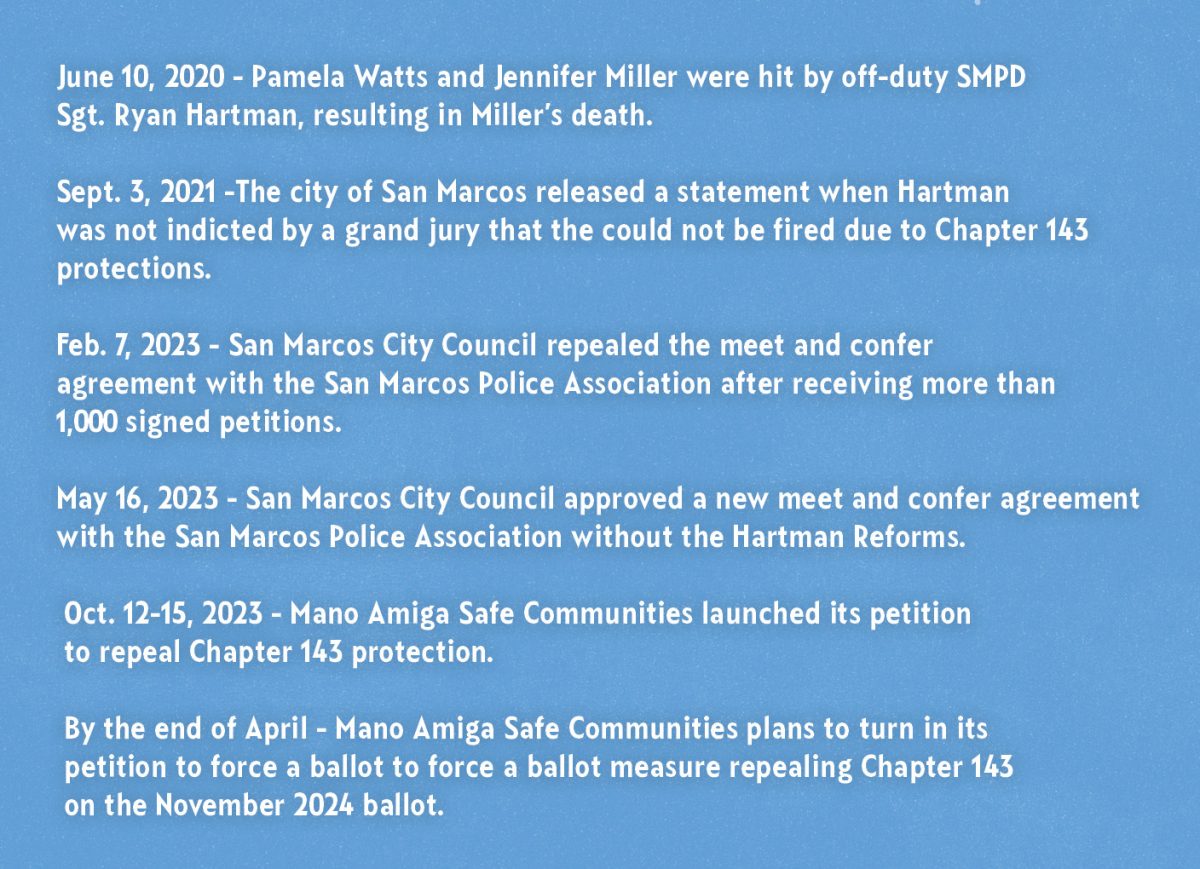Due to the growing popularity of vaccine exemptions, there have been outbreaks of vaccine-preventable diseases across the country, with Texas reporting cases across the state.
There were four cases of mumps at Texas State in spring 2018, which is the biggest recent outbreak of viral infections at the university that can be prevented by vaccines. The source of the virus was a student who had not been vaccinated, although all the other individuals that contracted the disease had been vaccinated against it. All students involved made a full recovery.
This year, the Texas Department of Health and Human Services has reported 15 cases of measles from five different counties: Montgomery, Harris, Galveston, Bell, Dallas and Denton. Measles is a very contagious airborne disease. If someone who is not immune comes into contact with an infected individual, there is a 90 percent chance of contracting the illness.
Student Health Center Director Emilio Carranco urges students to educate themselves on vaccines in order to make informed decisions on what would be best for their health.
“Familiarize yourself with the history of vaccines and the impact they have had on our country,” Carranco said. “Take responsibility on your own health and inform yourself about what modern medicines tell us that vaccines can and cannot do and decide for yourself.”
According to the Center for Disease Control and Prevention, from January 1 to April 19 there have been 626 individual cases of measles confirmed throughout 22 states. Since 2000 when the disease was considered to be eradicated, this is the second-greatest outbreak. In 2014 there were 667 cases reported for the entire year in the United States. The CDC predicts that in the coming weeks 2019 will surpass 2014 for largest recent outbreak.
According to the Texas Department of Health and Human Services, Texas reported nine cases of measles in 2018, and just one in 2017. In just the first four months of 2019 there have been 15 people treated for the disease. The first confirmed case of measles in San Antonio was contracted by a man visiting Guadalupe County from the Philippines, which caused the disease to spread to at least one other individual. There has also been five reported cases of measles in the Houston metro area.
Mumps is also a vaccine preventable disease that is extremely contagious, contracted by an estimated 186,000 U.S citizens per year prior to the 1967 vaccination program. According to the CDC, there have been 426 reported cases of mumps so far this year across 34 states.
Texas has one of the largest outbreaks of mumps, due to the nearly 200 immigrants and detention camp workers infected in ICE camps throughout the state. Additionally, there have been eight reported cases at The University of Texas.
Linda Ripley, central Texas retired nurse, is worried about newborns coming into contact with people who have not been vaccinated and reflects back on when some of the diseases responsible for the recent outbreaks were eradicated.
“I think that children need vaccinations period. Most of these communicable diseases were practically eradicated for years until we started letting parents say no,” Ripley said. “Now they are coming back. Most of the younger generation didn’t see kids dying from whooping cough or being very sick from measles or scarlet fever or smallpox. If a parent doesn’t want to vaccinate their children then they should not be allowed in public schools or daycare.”
Currently, Texas requires vaccinations for children in secondary schools, starting at public schools in kindergarten through senior year of high school. Parents are allowed to bypass the vaccination if the child has a pre-existing medical condition or if the parents choose to withdrawal due to religious, philosophical reasons or safety concerns. However, Texas law also allows for a conscientious exemption in which parents do not have to have a particular reason to avoid vaccinating their children. The same criteria applies for the meningitis vaccination students are required to get before enrolling into universities.
San Marcos CISD currently has vaccine exemption rates higher than the national average, with the number of students without vaccines doubling between the 2016-17 school year.
According to the Center of Disease Control, “before the measles vaccination program started in 1963, an estimated 3 to 4 million people got measles each year in the United States… since then, widespread use of measles vaccine has led to a greater than 99% reduction in measles cases compared with the pre-vaccine era.”
Many parents are hesitant to vaccinate their children due to the debate that vaccinations cause autism. The CDC claims there is no link between vaccines and autism, and have conducted nine studies proving there is no correlation.
Fernanda Maldonado, political science senior, is supportive of vaccinations and thinks it is imperative to get vaccinated in order to be a proactive member of the community.
“The myth about vaccines causing autism has already been debunked many times, so that’s not really based in science,” Maldonado said. “It’s a public health crisis at this point, so it should just be a matter of the greater good. We all live in this society and we should all be sharing in it.”
If an outbreak of a vaccine-preventable disease occurs at Texas State, the Health Center has steps in place to limit the possible impact. Once the source of the virus is found, they try to determine who could have also contracted the easily spread disease. The students affected would be treated for the infection and anyone without the vaccination prior to the outbreak would be encouraged to receive one.
The Student Health Center at Texas State offers all vaccines. Call (512) 245-2161 to schedule an appointment or discuss vaccine options with a healthcare professional.

April 25, 2024

April 25, 2024

April 24, 2024
Vaccine-preventable diseases sweep the country, including Texas
April 23, 2019
Donate to The University Star
Your donation will support the student journalists of Texas State University. Your contribution will allow us to purchase equipment and cover our annual website hosting costs.
More to Discover
SECTIONS
SERVICES
CONTACT INFORMATION
universitystar.com
601 University Drive
San Marcos, TX 78666
Phone: 512-245-3487
Email: [email protected]
601 University Drive
San Marcos, TX 78666
Phone: 512-245-3487
Email: [email protected]
© Copyright 2024 The University Star 601 University Drive, San Marcos, TX | Privacy Policy
© Copyright 2024 The University Star 601 University Drive, San Marcos, TX | Privacy Policy

